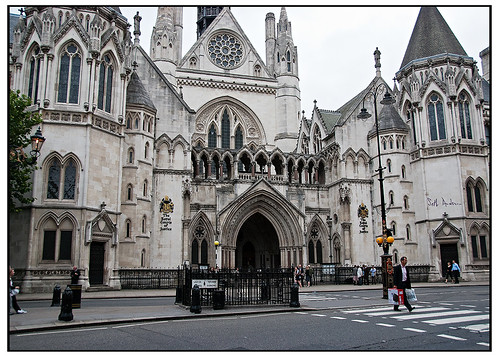Perhaps hero too strong a word, but still, Thomas Cox should be feted by all those steam-rolled by bankers in pursuit of profits…
Mr. Cox1 vowed to a colleague that he would expose GMAC’s process and its limited signing officer, Jeffrey Stephan. A lawyer in another foreclosure case had already deposed Mr. Stephan, but Mr. Cox wanted to take the questioning much further. In June, he got his chance. A few weeks later, he spelled out in a court filing what he had learned from the robo-signer:
“When Stephan says in an affidavit that he has personal knowledge of the facts stated in his affidavits, he doesn’t. When he says that he has custody and control of the loan documents, he doesn’t. When he says that he is attaching ‘a true and accurate’ copy of a note or a mortgage, he has no idea if that is so, because he does not look at the exhibits. When he makes any other statement of fact, he has no idea if it is true. When the notary says that Stephan appeared before him or her, he didn’t.”
GMAC’s reaction to the deposition was to hire two new law firms, including Mr. Aromando’s firm, among the most prominent in the state. They argued that what Mrs. Bradbury and her lawyers were doing was simply a “dodge”: she had not paid her mortgage and should be evicted.
They also said that Mr. Cox, despite working pro bono, had taken the deposition “to prejudice and influence the public” against GMAC for his own commercial benefit. They asked that the transcript be deleted from any blog that had posted it and that it be put under court seal.
In a ruling late last month, Judge Powers said that GMAC, despite its expensive legal talent and the fact that it got “a second bite of the apple” by filing amended foreclosure papers, still could not get this eviction right.
Even the amended documents did not bother to include the actual street address of the property it was trying to seize — reason enough, the judge wrote, to reject the request for immediate foreclosure without a trial.
But Judge Powers went further than that, saying that GMAC had been admonished in a Florida court for using robo-signers four years ago but had persisted. “It is well past the time for such practices to end,” he wrote, adding that GMAC had acted “in bad faith” by submitting Mr. Stephan’s material:
“Filing such a document without significant regard for its accuracy, which the court in ordinary circumstances may never be able to investigate or otherwise verify, is a serious and troubling matter.”
(click to continue reading Out of Maine, a National Foreclosure Freeze – NYTimes.com.)
You can read the Judge’s order here, and Jeffrey Stephan’s deposition here (both PDF files)
Footnotes:- Thomas A. Cox, a retired lawyer who volunteers at Pine Tree [↩]







